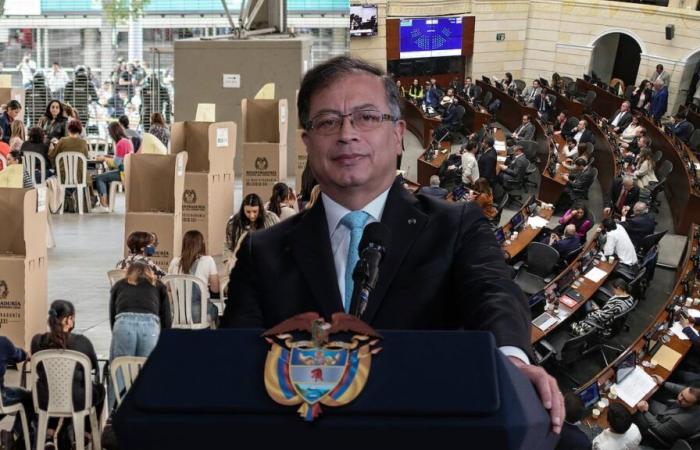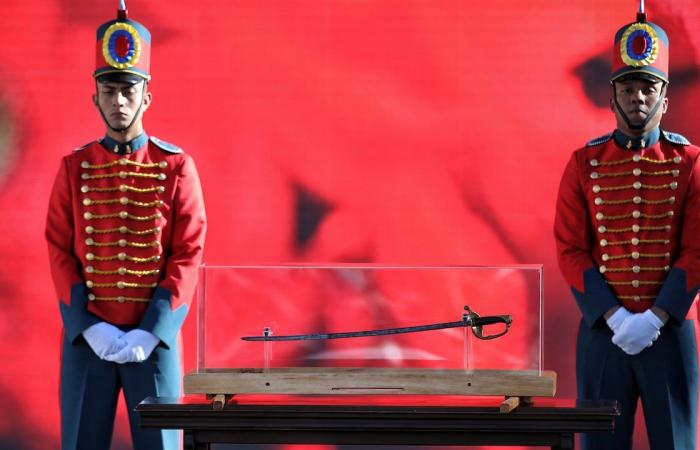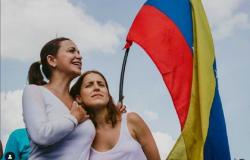On May 1, 2025 he will go down in history as the day when President Gustavo Petro’s government began firmly with the intention of promoting a popular consultation, after the sinking of labor reform in the seventh commission of the Senate.
Petro will take advantage of Labor Day to return to its strategy to summon the streets, power that has been losing on account of the scandals and problems during their mandate and with different officials.
However, it cannot be ignored that it still has followers that comply with the calls of the president when he wants to go to the public square, that without the strength that characterized him in the campaign and in the first weeks of mandate.
The popular consultation became an obsession for the Executive and – as the Interior Minister, Armando Benedetti, said it – “the consultation is going yes or yes.” For that reason, in addition to promoting the mechanism of citizen participation, the 2026 campaign will be anticipated, in which Colombians will choose the new Congress of the Republic and the replacement of Gustavo Petro in the House of Nariño.
The day of this holiday will be framed by several symbolisms: Petro will personally go to the Senate to settle the popular consultation, He will take Bolivar’s sword so that citizens see it, It will give a new speech in Public Square and ask “the people” to make decisions.
A strategy that will undoubtedly stir its followers and incidentally generate that the opposition has more tools for its campaign.
Although different sectors have said that several of the questions included in the popular consultation could be regulated by existing laws or issue decrees, petrism knows that ad portas From a contest this is the best scenario to have revenues and become counts.
As he said WEEK In March, even if Petro loses in the popular consultation, he will draw all the political revenues for the 2026 elections.
Petro and his close ring have a calculated strategy that seeks to know the electoral support they would have for next year. In addition, it will be the first time in the history of the country that a president uses this mechanism of citizen participation.
In the Casa de Nariño they are clear that they can win a lot like that they lose at the polls, because they can continue with the speech of the “powerful”, the “oppressor”, the “rich”, the “fascist”, words that polarize and fit into a country of inequalities. In conclusion, this mechanism will be done to activate emotions a few months after Colombians go to the polls.
Achieving the required threshold, about 14 million votes, seems to be an impossible task, but the government will have a clear benefit to know if four or six million will come to the polls, because it will be the basis for progressivism for the presidential ones and the letter to start playing for power.
Returning to the mechanism, with the filing this May 1, the Senate will have a maximum of 30 days to pronounce in the background and determine whether or not to support the proposal. Petro has already announced that if this corporation does not issue a concept for or against, the popular consultation will convene by decree.
If the terms are fulfilled and the Senate gives the guarantee, the Government can immediately set a date and establish contact with the Registry for such purposes. According to executive calculations, the citation would be in the month of August so that there is time to organize all the logistics by the electoral authorities.
In such a way that from now on the political issue will be that of the popular consultation and when the result is, regardless of, that will be an electoral flag for next year.
In any case there is a calculation that could go wrong to the Petro government, because it filed an emergency message to the bill of the liberal party that contemplates some points of the work.
The objective of the law is “to guarantee the dignification and protection of the labor rights of workers, especially of the Sunday, rest, mandatory, holiday and nocturnal days.” To do this, several points were established that would change the sector.
First, it would be established that the day work It is the one that takes place between 6:00 am and 8:00 pm, while the Night work It would start at 8:00 pm and culminate at 6:00 am the next day.
Secondly, work on a mandatory rest or party days will be remunerated with A 100 % surcharge on the ordinary salary in proportion to the hours worked. If approved, it would be done gradually: July 2025 (80 %), July 2026 (90 %) and July 2027 (100 %).
The third consideration is that microenterprises and small businesses will be able to make part -time social security payments, which in any case must be computed in weeks ending each month. “The National Government will prioritize and protect the hotel sectors, restaurants, bars, agriculture, tourism and transport,” he says.
According to some congressmen, the Government’s commitment when there is an emergency message is to sink this initiative in the House of Representatives, to have more strength for the popular consultation, but no one knows what will happen if approved, because it contains some key points that were included in the popular consultation.
From this Thursday each political sector will start its strategy and the country could enter a high level of polarization on behalf of some sectors that are only looking for an electoral benefit.
Popular consultation questions
1. Do you agree that the day work lasts maximum 8 hours and is between 6:00 am and 6:00 pm?
2. Do you agree with a 100 % surcharge work on Sunday or festive rest day?
3. Do you agree that micro, small and medium -sized preferably associative productive companies receive preferential and incentive rates for their productive projects?
4. Do you agree that people may have the necessary permits to address medical treatments and licenses for disabling menstrual periods?
5. Do you agree that companies must hire at least two people with disabilities for every 100 workers?
6. Do you agree that young apprentices of SENA and similar institutions have a employment contract?
8. Do you agree with establishing a special labor regime so that field entrepreneurs guarantee labor rights and just salary to agricultural workers?
9. Do you agree to eliminate outsourcing and labor intermediation through union contracts that violate labor rights?
10. Do you agree that domestic workers, community mothers, journalists, athletes, artists, drivers, among other informal workers, are formalized or have access to social security?







